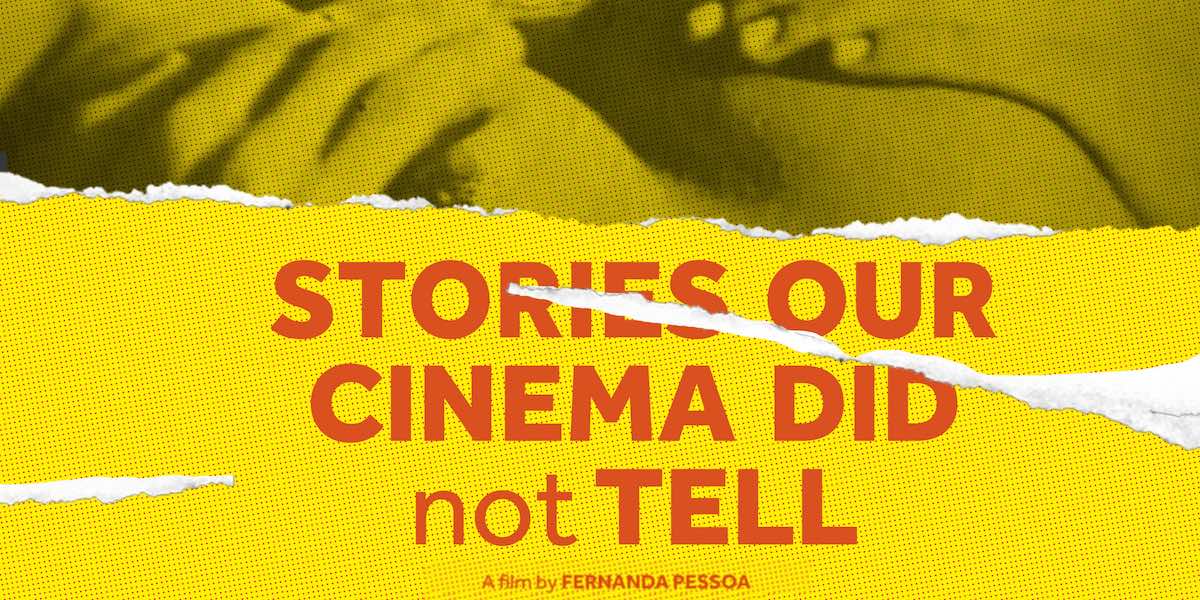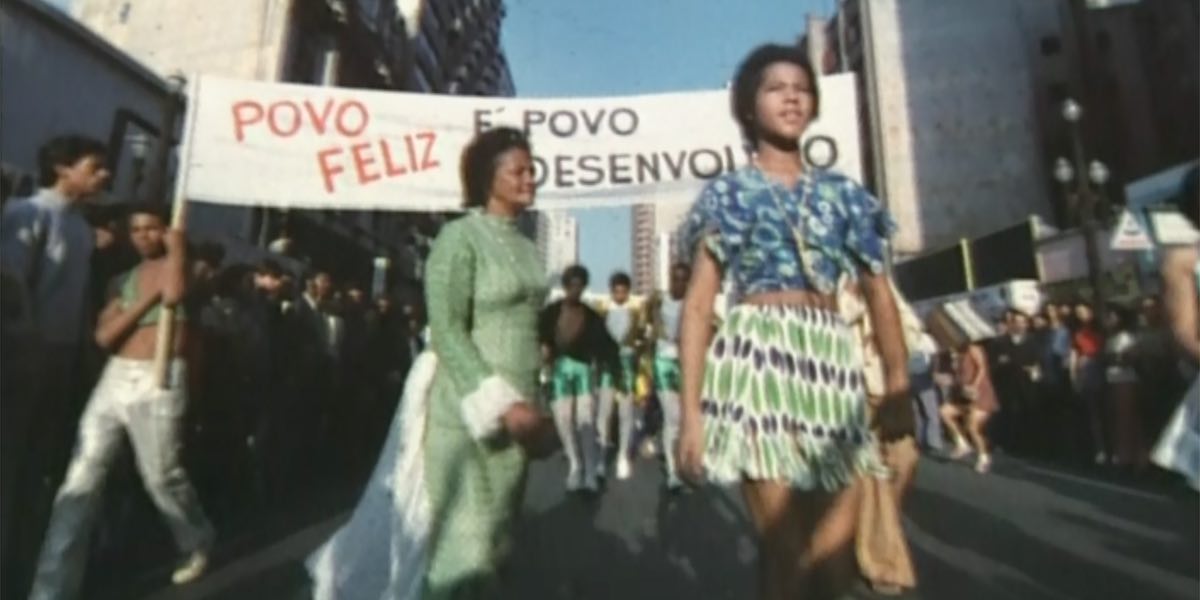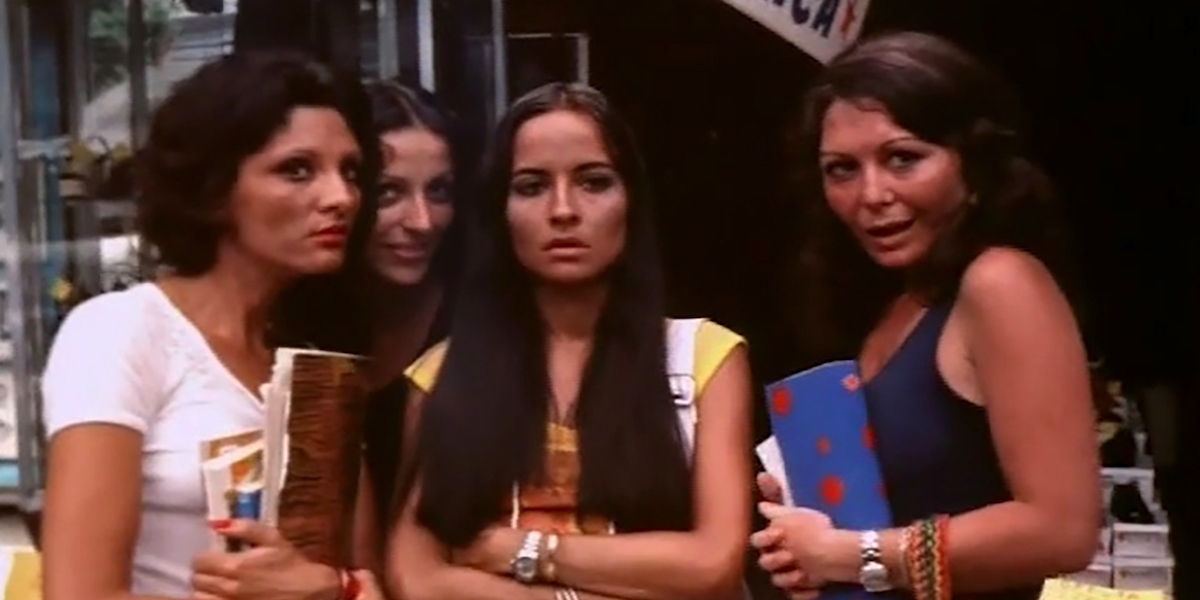Stories Our Cinema Did (Not) Tell
(Histórias que nosso cinema (nāo) contava)
Fernanda Pessoa / Brazil / 2017 / 80 min




Doclisboa Int'l Film Festival
Tiradentes Film Festival
Montreal Festival du Nouveau Cinéma
Pricing
Related Films
 Uncertain Journey(Camino incierto)Pablo García Pérez de LaraApichatpong Weerasethakul, Pedro Costa, Manoel de Oliveira, Luis Miñarro, and Pablo García Pérez de Lara share images, sounds, and words as they walk ...
Uncertain Journey(Camino incierto)Pablo García Pérez de LaraApichatpong Weerasethakul, Pedro Costa, Manoel de Oliveira, Luis Miñarro, and Pablo García Pérez de Lara share images, sounds, and words as they walk ... Time Theorem(Teorema de tiempo)Andrés KaiserSince 1945, Anita Schlittler and Arnoldo Kaiser managed a printing press in downtown San Luis Potosí. Almost 80 years later, a discovery revealed their ...
Time Theorem(Teorema de tiempo)Andrés KaiserSince 1945, Anita Schlittler and Arnoldo Kaiser managed a printing press in downtown San Luis Potosí. Almost 80 years later, a discovery revealed their ... I Owe You a Letter About Brazil(Fico te devendo uma carta sobre o Brasil)Carol BenjaminConnecting the country’s recent past and the turbulent present context, I Owe You a Letter About Brazil investigates the persistence of silence as a ...
I Owe You a Letter About Brazil(Fico te devendo uma carta sobre o Brasil)Carol BenjaminConnecting the country’s recent past and the turbulent present context, I Owe You a Letter About Brazil investigates the persistence of silence as a ... Seeds: Black Women in Power(Sementes, Mulheres Pretas no Poder)Éthel Oliveira and Júlia MarianoThe 2018 elections turned into the biggest political upheaval led by Black women that Brazil has ever seen, in response to the brutal execution of Rio de ...
Seeds: Black Women in Power(Sementes, Mulheres Pretas no Poder)Éthel Oliveira and Júlia MarianoThe 2018 elections turned into the biggest political upheaval led by Black women that Brazil has ever seen, in response to the brutal execution of Rio de ... Blooming on the Asphalt(Germino Pétalas No Asfalto)Coraci Ruiz, Julio MatosAs Jack starts his gender transition process, Brazil is plunged into a wave of extreme conservatism. For five years, we follow the transformations in ...
Blooming on the Asphalt(Germino Pétalas No Asfalto)Coraci Ruiz, Julio MatosAs Jack starts his gender transition process, Brazil is plunged into a wave of extreme conservatism. For five years, we follow the transformations in ...Synopsis
Portuguese with English subtitles
Award-winning filmmaker Fernanda Pessoa presents a notable revision of 1970s Brazil, a period of deep social transformation that saw the country open up to international investment, rapid urban modernization, and increased tensions resulting from the sexual revolution, all happening as a military dictatorship ruled in power for over 21 years.
A widely popular and vastly produced film genre emerged during this period: the pornochanchadas. Mostly a mix of urban comedy and erotic cinema, these low-budget films oscillate between voyeuristic exploration and raw visual exploitation. Made through a formidable montage from a selection of pornochanchada films, Pessoa’s experimental documentary renders a most pleasurable audiovisual essay of urgent political and cultural implications.
Related Subjects
About the Director

Available for Q&As, Masterclasses, panels, and workshops upon request, in English, Portuguese, Spanish, or French.
Book a Screen+Talk
In 2017, Pessoa released her first feature documentary, Stories Our Cinema Did (not) Tell (Histórias que nosso cinema (não) contava, 2017), which participated in over 25 film festivals around the globe. She has directed several short films, music videos, and has participated in solo and group exhibitions internationally.
In 2019, her second feature documentary film Arid Zone received an Honorable Mention at DOK Leipzig. She’s currently working on a new video-art piece called Order Prevails, which has already been selected for competition in the Videoarte Award of Fundação Joaquim Nabuco. Her film Swing and Sway (2022), screened at Sheffield DocFest, DokLeipzig, and Olhar de Cinema, RIDM.
She has also directed several short films Same/Different/Both/Neither (2020, IDFA, IDA Shortlisted, DOC NYC), Order Prevails (2022, It’s All True, BIENALSUR), and Solidarity (2022, Oberhausen).
She’s currently working on the pre-production of her 4th documentary, Roofless, and on the development of Frame, her first fiction feature, selected for the Berlinale EFM Fiction Toolbox and PAS Nantes.
Pessoa is a Berlinale Talents Alumni and part of the Paradiso Talent Network.
Press
“One of the most significant events in the art world this year.” – Inácio Araújo, Folha de São Paulo
“A brilliant editing work.” – Quentin Papapietro, Cahiers du cinéma
“What Pessoa managed to exhume reflects a breakthrough into collective but forgotten memory, shedding light on female exploitation and human inequalities during that period.” – Georgia Korossi, International Documentary Association
“What is most impressive about the film is its exercise in contrasts […] there is a willingness to approach a largely disavowed archive of conservative genre films in order to discover something – a scene, a look, a gesture, a line – that is worth redeeming.” – Stefan Solomon, Senses of Cinema